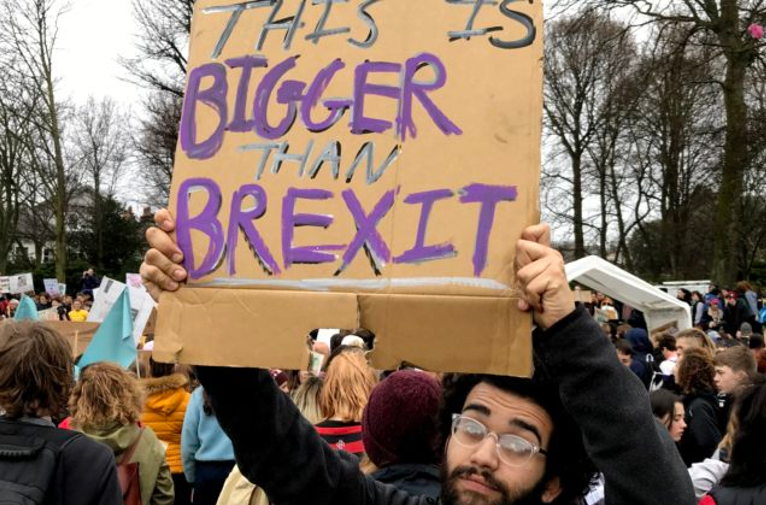by FRANCES FOLEY

Holding a Citizens’ Assembly on climate action is one of just three demands by the headline-grabbing activists of Extinction Rebellion, whose city-stopping protests now progress to local movement building. Yet many people don’t even know what a such an assembly is, even as the City Council in Oxford, UK, prepares to organise their own. But Frances Foley, of the Citizens’ Convention on UK Democracy, writing here for the Rapid Transition Alliance, says that a ground-breaking Irish experiment in deliberative democracy shows that citizens’ assemblies really can help deliver climate action.
A national roll-out of low-carbon public vehicles, state support for community energy generation, higher taxes on carbon-intensive sectors, incentives for responsible agricultural land use and carbon sequestering, government-backed planting of forests, an extension of bus and cycle lanes and climate change at the centre of all government policy making.
It reads like a Christmas list for a climate activist. A bold, comprehensive and realistic government commitment to taking climate change seriously. Real leadership, real ambition – a real shift.
Yet this policy programme comes not from the Green Party central office, nor from yet another environmental thinktank report. The 13 recommendations were reached through a serious exercise in democratic decision-making in Ireland. The government signed up and set up; the citizens turned up and scaled up. It was a show of good faith from every side – political class, citizenry, media. It was a leap of democratic faith.
In July 2016, the new government – led by Fine Gael, backed by independents – put forward a bill to establish a national-level Citizens’ Assembly to look at the biggest issues of the day. These included the challenges of an ageing population; the role fixed-term parliaments; referendums; the 8th Amendment on abortion; and climate change.
Citizens from every region, every socio-economic background, each ethnicity and age group and from right across the spectrum of political opinion convened over the course of two weekends between September and November 2017. The issue seemed daunting in scale and complexity, but the participants had been well-briefed and had at their disposal a line up of experts, scientists, advocates and other witnesses who would help them make sense of the material. By the end, citizens had produced a radical series of recommendations which went far beyond what any major Irish party was promising, surprising even the initiators of the process.
These recommendations mainly relate to energy production, transportation and agriculture, three of the biggest sources of Ireland’s carbon emissions. As a programme, they put a clear stake in the ground that will be hard to avoid or dismiss, not least because it was planted by citizens through an open and deliberative process. For successive governments, the recommendations should be seen either as a challenge, useful cover or a yardstick by which they can be judged, depending on their starting point.
Resilience for more
